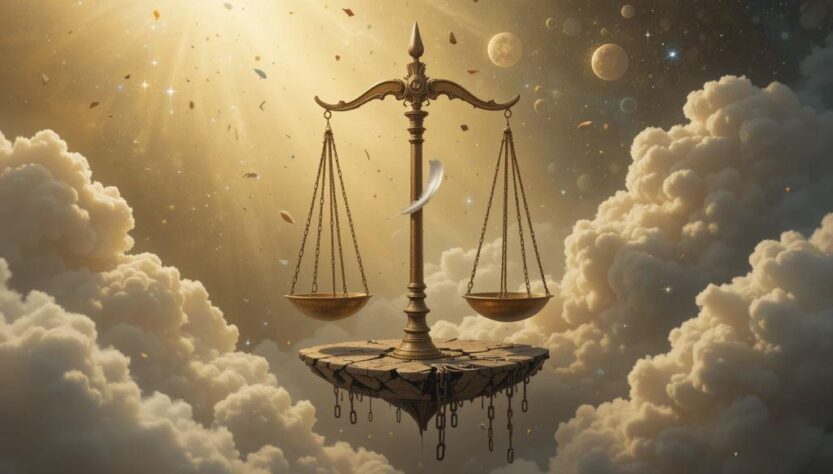Yesterday I sat quietly listening to the sermon of an ustaz. His voice was great, his tone was sure, and the contents of his message were firm: the people of the Prophet Muhammad were the last people but would enter the earliest heaven. The sentence was welcomed by a nod solemnly some pilgrims. But I was choked up by a doubt that suddenly gnawed at reason. Is it true that how the divine justice works? Why are those who are born last actually called the most entitled to enter first into heaven? Does the religion that upholds justice now contains narratives that ignite the superiority?
At this point I felt the need to stop for a moment from a passive solemnity. Isn’t an adult faith requires the courage to ask questions? If heaven is the peak of reward for good deeds, why does it suddenly become a privilege because of the label of publicity? Doesn’t this contain a kind of spiritual privilege that does not stand on human free choice – because no one of us chose to be born as followers of the Prophet?
The idea that the end -time people received heavenly priority containing complex moral implications. Does this not obscure the principle that every human being will be rewarded according to his actions, as confirmed in the Koran, “Anyone who does the good of the particle, he will see (the answer), and anyone who committed the particle crime, he will see (the answer)” (QS Az-Zalzalah: 7–8). Here, God does not mention ‘people’, but ‘which’ is a universal expression that eliminates the boundaries of religion and religion.
Perhaps what must be criticized is not the argument, but the way some people interpret and package it into an exclusive narrative. Michel Foucault once said that power works through discourse; And in religion, discourse can create invisible spiritual hierarchy. So, in such lectures, we not only hear religious interpretations, but also the production of power discourse: who is more entitled, who first, who is more noble.
From the perspective of the philosophy of justice, this question burst: is it possible for justice to be upheld if it starts from the assumption that some human beings are superior just because of accidental history? John Rawls Dalam Justice theory Explain that true justice arises from the position “Hijab ignorance“—The ignorance in which a person does not yet know what social, economic, or diversity status will be. If someone does not know who he will be born as a people, of course he will demand a neutral justice system and not biased with publicity.

Furthermore, the narrative of the specialty of certain people has the potential to give birth to a new form of religious narcissism Namely the belief that the group itself is most loved by God, the first to enter heaven, and the most correct in the interpretation of faith. This was once criticized by Karen Armstrong in his book Battle for GodWhere he emphasized that the failure to understand religious symbolism can transform into fundamentalism that closes space for affection and wisdom.
How ironic, if the teachings about humility are actually wrapped in the language of spiritual statements. Isn’t the most touching prayer not those who come from those who feel worthy, but of those who feel fragile? In a prayer that was caused to Imam Hasan al-Bashri, said softly: “O Allah, if you dumped me to hell, say it because of my sins, not because you are unfair.” A recognition that goes beyond the calculation of the reward, towards the territory of true love and surrender.
Perhaps, heaven is not a place that is opened based on the order of arrival, but is opened by the key to sincerity. He does not know the queue of time, but recognizes heart heart. Then the first can be the last, and the last can be the first.
In the midst of a world that is increasingly divided by the claim of absolute truth and pride of identity, the teachings that entertain their own groups while negating the others must be re -read critically. We need low -cost spirituality, not the rise. We need faith that opens, not closing. Faith who loves humanity as he loves his Lord.
Then, in the evening reflection, I ask ourselves and perhaps to all of us: Is it true that we are more worthy of heaven only because we are certain people, or precisely the question itself that we must leave, replaced with the awareness that none of us really know-and precisely in ignorance that is sincerity to find its form? Maybe, a true paradise is not about who goes in first. But about who really understands the meaning of not feeling worthy.
Also read: Is it true that the prison world for Muslims and heaven for infidels?
Writer: Fileski Walidha Tanjung, a writer born in Madiun 1988. Actively writing essays, poetry, and short stories in various national media.
Editor: Muh Sutan
Game Center
Game News
Review Film
Rumus Matematika
Anime Batch
Berita Terkini
Berita Terkini
Berita Terkini
Berita Terkini
review anime
